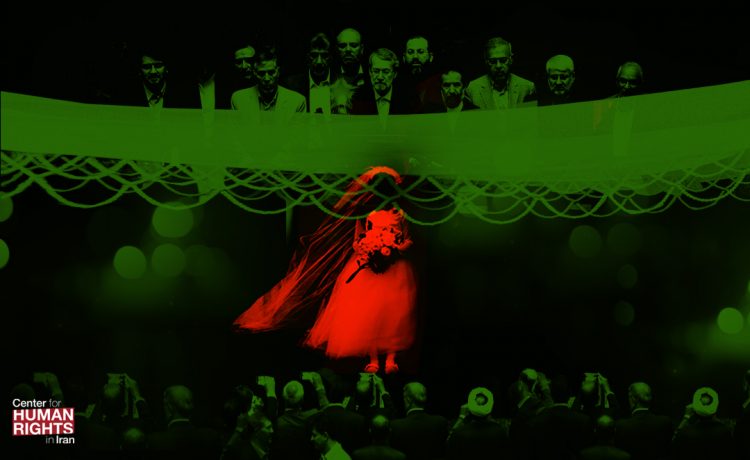Iran Must Confront Its Child Protection Crisis

OCTOBER
11, 2019
On the International Day of the Girl Child,
All States Urged to Address Needs of Girl Children
Child Marriage, Lack of Protection against
Abuse, Juvenile Executions Key Issues in Iran
October 11, 2019—On the
International Day of the Girl Child, the Center for Human Rights in Iran (CHRI)
urges the authorities in Iran to confront its child protection crisis, and fulfill the mandate of the
day, which the UN states is to “address the needs and challenges girls face,
while promoting girls’ empowerment and the fulfillment of their human rights.”
“There is no justification
for the forced marriage of girl children, the lack of protections for children
against abuse, or the execution of children,” said Hadi Ghaemi, CHRI executive
director.
“The millions of girls in
Iran who are facing these rights violations and the lack of laws and
protections that are vital for their safety represents a crisis that the
international community must continuously address and the authorities in Iran
must be held accountable,” Ghaemi added.
Iran’s civil code puts the legal age of marriage for
girls at 13, while girls younger than 13 can be married with the consent of
their father and a judge. UNICEF estimates 17 percent of girls in Iran are
married before the age of 18, while recently released Iranian statistics
indicate that for officially registered marriages in 2016, the bride was under 18 years old in 20 percent of the marriages,
and under 14 in 5 to 6 percent of the marriages. These
numbers significantly under-represent child marriage in Iran, since underage
marriages are often not registered.
Iran is the world’s leader
in executions of child offenders—and this includes girl children. For
example, Zeinab Sekaanvand was arrested when she was
17-years-old and executed on October 2, 2018, for the alleged murder of her
husband (even though she reported she had been physically abused by him).
Protections against child
abuse are inadequate in Iran. Current law does
not protect children against physical abuse and there is no mention of sexual
abuse. Civil and penal codes do not clarify limits on physical punishment by parents.
Proposed legislation to try to improve protections against abuse has been languishing, unpassed, for over a decade. In addition,
there are weak preventative, reporting and intervention mechanisms.
Child labor is also
insufficiently addressed in Iran, which affects both female and male children.
The UN estimates there are some three million child laborers in Iran,
while Iranian NGOs have said the number may well be
closer to 7 million. Many of these children are girls. Iran’s weak regulatory environment and
lack of enforcement of existing labor laws facilitate
the use of child labor in sectors across the economy.
Especially vulnerable
girls, such as those with disabilities, face an educational system that affords them neither access nor equality,
and LGBTQI girls, who are frequent victims of violence in homes, schools and
communities, are unable to seek protection without risking prosecution.
In addition, the
trafficking of children for the sex trade remains an under-addressed issue in
Iran.
Girls Inhumanely Separated from their Unjustly
Imprisoned Mothers
On the International Day
of the Girl Child, CHRI also wishes to note the girl children who have been
inhumanely and unjustly separated from their mothers who are political
prisoners in Iran.
Gabriella, the daughter of Nazanin Zaghari-Ratcliffe,
who has been imprisoned in Iran on unspecified and unsubstantiated espionage
charges for the last three years and thus separated from Gabrielle, has just
returned to the UK where she is joining her father, Richard Ratcliffe, in order
to attend school in the UK. Nazanin has been eligible to be considered for release since
November 2017, based on Iranian law. She should be released immediately and
finally allowed to rejoin her daughter Gabriella.
The daughters of other
political prisoners have suffered similar deprivation. For example, the
children (now living in France) of Narges Mohammadi, who is imprisoned in Iran for her
peaceful activism, have been consistently denied telephone contact with their
mother. In a recent letter published by the Defenders of Human Rights
Center, Ozra Bazargan, the mother of Narges Mohammadi, wrote: “In
the history of humanity, rarely has a ruler carried the shame of denying a
mother of young children in such a way that they would forget her face and her
voice, and wonder, in their childish fear, if they have a mother or if she’s
alive or not.”
No comments:
Post a Comment